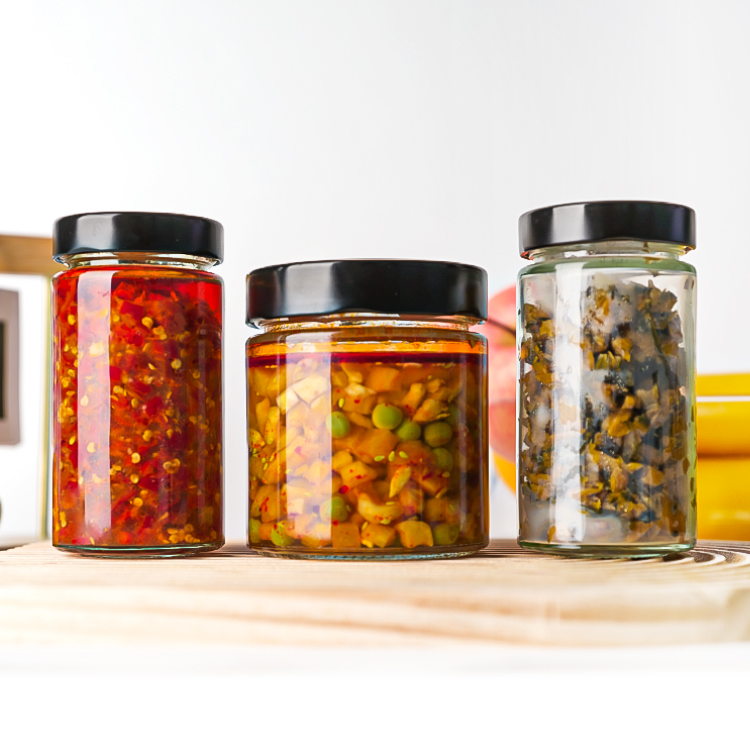15 Common Canning Errors When Using Glass Lidded Jars for Food Preservation
15 Common Canning Errors When Using Glass Lidded Jars for Food Preservation
What comes to your mind when thinking of food preservation? Canning. Yes? Canning is one of the best and healthiest methods of preserving produce, particularly seasonal ones, so they can be enjoyed all year long. For this purpose, glass lidded jars of various sizes such as 720ml, 500ml and 250ml sizes are often chosen as containers for food preservation in canneries.
Produce must be properly canned to protect it from contamination, spoilage and reduction of shelf life. Therefore, it's vitally important that canning mistakes are identified and avoided during canning; in this article we'll outline 15 such mistakes which could thwart your efforts.

Common Canning Mistakes Made When Using a Glass Lidded Jar
1. Not Sterilising Jars Properly
To prevent bacteria from contaminating your food post-canning, it's crucial to thoroughly clean and sterilize your glass jars. This step is essential in the canning process. To sterilize the jars, submerge them in boiling water for a maximum of 10 minutes, then let them dry on a clean rack.
2. Using Chipped or Cracked Jars
A key benefit of glass preserving jars is that they can be used multiple times. However, it is important to check each jar for any chips or cracks before reusing them. A damaged glass jar with a lid cannot create an effective seal, which could let air and impurities enter the canned food, resulting in spoilage and loss.
3. Not Leaving Good Amount of Headspace
Headspace plays a crucial role in avoiding oxidation, accommodating expansion, and ensuring a proper seal. This refers to the gap between the food and the lid inside the jar. No matter if you're using a 720ml or a 250ml glass jar, insufficient headspace can cause the jar to shatter during canning. Conversely, excessive headspace may allow too much air to remain in the jar, resulting in inadequate sealing. Here are some tips for maintaining appropriate headspace when canning:
- For jam and jellies, leave about ? inch headspace
- For low-acid food, leave a 1-inch headspace.
- For fruits, tomatoes and pickles, leave ? inch headspace.
4. Overfilling the Glass Jars
Overfilling your glass jars can lead to issues with sealing. By filling them to the brim, you eliminate essential headspace, which can cause the contents to spill and waste food, similar to the problems associated with insufficient headspace. To prevent this, refrain from using small 250ml glass jars for storing more than 260ml of food. It's important to accurately gauge the amount you plan to store before purchasing glass containers for canning.
5. Underfilling Jars
Understanding the amount of produce you plan to can is crucial for selecting the appropriate jar sizes. If jars are not filled adequately, it may result in poor sealing, ultimately shortening the shelf life of the preserved items. For smaller batches, using 250ml glass jars is advisable.
6. Not Removing Air Bubbles
While this may seem minor, it has the potential to compromise the seal and cause food to spoil. It is essential to use a non-metallic tool or a plastic bubble remover to eliminate any trapped air in the food before sealing the preserving jar.
7. Using the Wrong Canning Method
Recognize that various canning methods exist for different types of food. To guarantee you're employing the appropriate canning technique for the specific food you're preserving, conduct comprehensive research to prevent any risk of foodborne illnesses. Here are some suggestions:
- Use the water bath canning technique for high acidic food content like pickles, jam, and jellies.
- Consider the pressure canning technique for vegetables and meat, which are low-acid foods.
8. Not Adjusting for Altitude
Understanding the impact of altitude on canning processing time is crucial. For those residing at elevated elevations, it’s beneficial to familiarize yourself with the suggested canning processing durations specific to higher altitudes, as these times are generally longer than those required at lower elevations.
9. Reusing Some Lids
Similar to how not every jar is suitable for reuse, the same applies to lids. While reusing lids might appear to be a budget-friendly option, it can actually result in waste due to compromised seals that may cause your canned goods to spoil. It is advisable to avoid using plastic lids altogether.
10. Not Wiping Jar Rims
Once you have filled the jar with a lid, it's important to wipe the rim clean to eliminate any food particles that might interfere with the seal and promote mold growth.
11. Improper Storage of Lids
Metal and aluminum lids need to be kept in a cool, dry environment to ensure they are stored correctly. Improper storage can lead to rusting or compromise their sealing ability.
12. Not Following Recipe Instructions
Exploring new ideas can be valuable. However, when utilizing a pre-existing recipe, it is advisable and advantageous to adhere to the provided guidelines. This encompasses aspects like processing duration, canning methods, headspace requirements, sealing techniques, and more.
13. Using Outdated Recipes
Prior to canning, verify that the recipe you plan to use is current. Certain recipes may no longer be safe due to potential health hazards, such as foodborne illnesses. It's important to consult reliable sources and select recipes that adhere to the latest food safety guidelines.
14. Not Processing for the Correct Time
The duration of the canning process is crucial for establishing a vacuum seal and eliminating dangerous bacteria, which underscores the need to adhere to the appropriate processing time for jars with glass lids. If you process for too long, it can compromise the food's quality; conversely, insufficient processing may result in spoilage.
15. Cooling Jars Too Quickly
It might be appealing to cool glass jars with lids quickly, but resist the urge, as this can lead to cracking. It's best to let the jars cool down slowly.